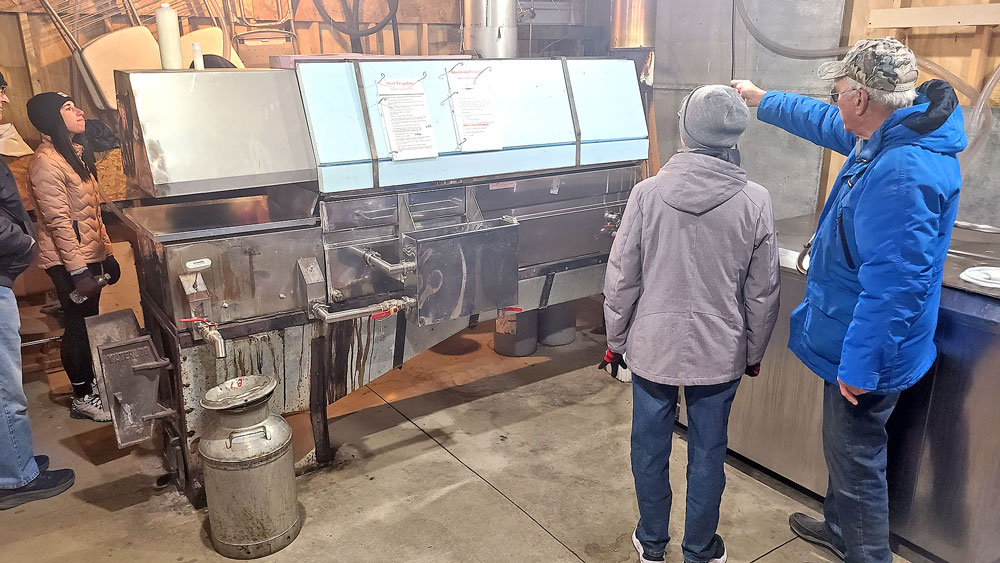Iowa Court of Appeals affirms summary judgment in Floyd intersection death lawsuit
By Bob Steenson, bsteenson@charlescitypress.com
The Iowa Court of Appeals has affirmed the dismissal of a lawsuit filed by a Floyd County couple against the state of Iowa over the death of their son in a motor vehicle accident at the Floyd intersection with the Avenue of the Saints.
Thomas and Diane Houdek, as administrators of the estate of their son, Thomas John “T.J.” Houdek, had sued the state, the Iowa Department of Transportation and “various unnamed state employees,” alleging negligence and gross negligence in the design and signage of the intersection.
T.J. Houdek was killed July 17, 2016, when his Harley-Davidson motorcycle was struck by a westbound semi tractor-trailer when Houdek pulled out from Quarry Avenue to cross the westbound traffic.
The Houdeks claimed the state failed to design an intersection that was safe and free of design defects, failed to warn the public of the dangerous conditions at the intersection, failed to maintain proper signage, failed to properly supervise the intersection, failed to take proper measures to protect the public from the hazards at the intersection, failed to warn of known danger and failed to provide ordinary care of the duty to provide a safer intersection.
The Houdeks filed the claim in Floyd County District Court in December 2018. In January 2019, the state filed a motion asking the court to dismiss the lawsuit.
The state, represented by an assistant attorney general, argued that Iowa law is clear barring claims of liability against public bodies for failure to “place, erect or install” traffic control devices, and that it was “improper and unnecessary” to include “various unnamed state employees” in the suit.
In April 2019, Judge Colleen Weiland granted part of the state’s motion to dismiss, dismissing claims based on the failure to place traffic control devices, and striking the various unnamed state employees as defendants.
Weiland allowed to stand the Houdeks’ claim of failing to provide ordinary care of the duty to provide a safe intersection.
In March 2020, the state filed a motion for summary judgment, arguing that there was no properly admissible evidence to support the claims made by the Houdek estate, and that the state was immune from the claims made by the estate because the highway had been designed according to accepted standards.
The state’s motion also said the evidence — including video monitoring by the state at the intersection — made it clear that the accident was the result of a “tragic mistake” T.J. Houdek made in pulling out in front of the semi.
“There was a clear and obvious failure to yield,” the state assistant attorney general said in the motion for the state, saying that in addition to the videotape evidence a state trooper investigating the accident determined that Houdek had failed to yield while coming from a road controlled by a stop sign.
The motion also said the lawsuit was barred by the public-duty doctrine, which says the duty the state owed Houdek was the same as for any other member of the public, and that Houdek wasn’t a member of a special class and didn’t have a special relationship regarding the state.
In October 2020, Judge Gregg Rosenbladt granted the motion for summary judgment, in effect ruling in favor of the state.
The Houdeks appealed the district court ruling and the Iowa Supreme Court sent the case to the Iowa Court of Appeals.
Last week the Court of Appeals issued its ruling, affirming the district court’s decision to grant summary judgment, based on the public-duty doctrine.
“The public-duty doctrine ‘precludes liability to individuals based on breach of a duty the state owes to the public at large,” the appeals court wrote, adding that two factors are required for the public-duty doctrine to come into play.
The first is that the injury to the plaintiff was caused by a third party or independent force. The second is that the plaintiff alleges the state breached a duty to protect the plaintiff from the third party or independent force.
The court of appeals said both factors apply in this case.
“First, we note T.J.’s injuries were inflicted by a semi. And no one contends the semi was owned or operated by the State,” the appeals court wrote.
Second, the court wrote, the Houdeks “claim the state failed to design an intersection that would have prevented the collision between T.J. and the semi.”
“Like other travelers on public roads, T.J. was a member of the general public. Any duty owed to T.J. ‘would be a duty owed to all users of this public road,’ not to any ‘particularized class.’” the court wrote.
“Because the public-duty doctrine applies, the administrators’ claims against the State cannot prevail. The district court was right to grant summary judgment,” the appeals court wrote.









Social Share